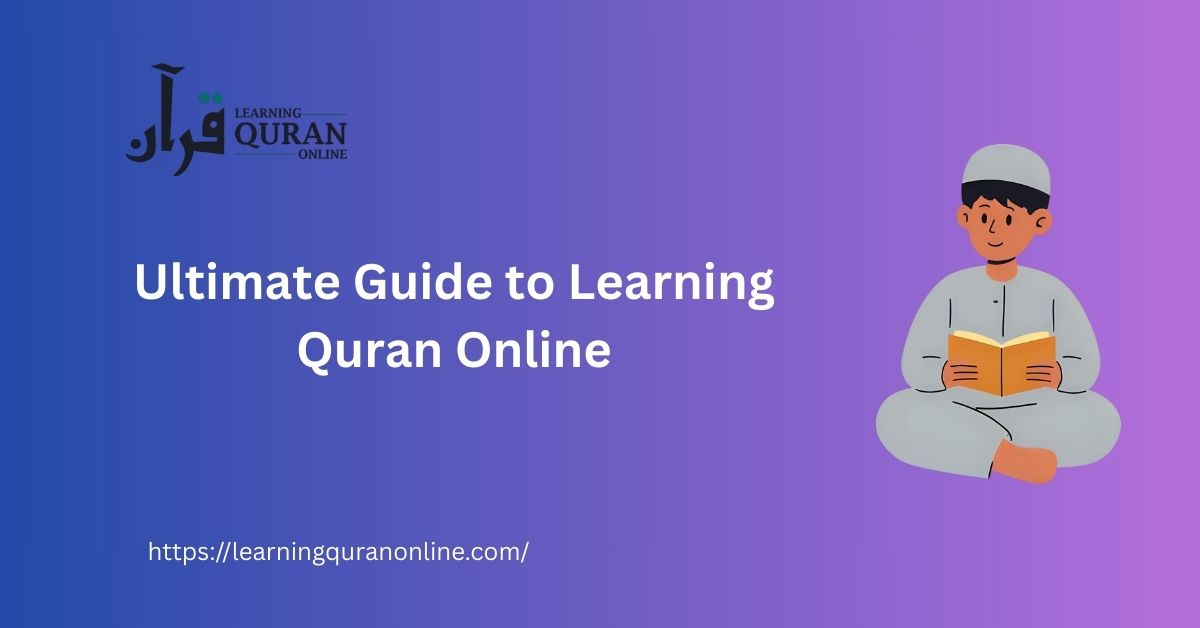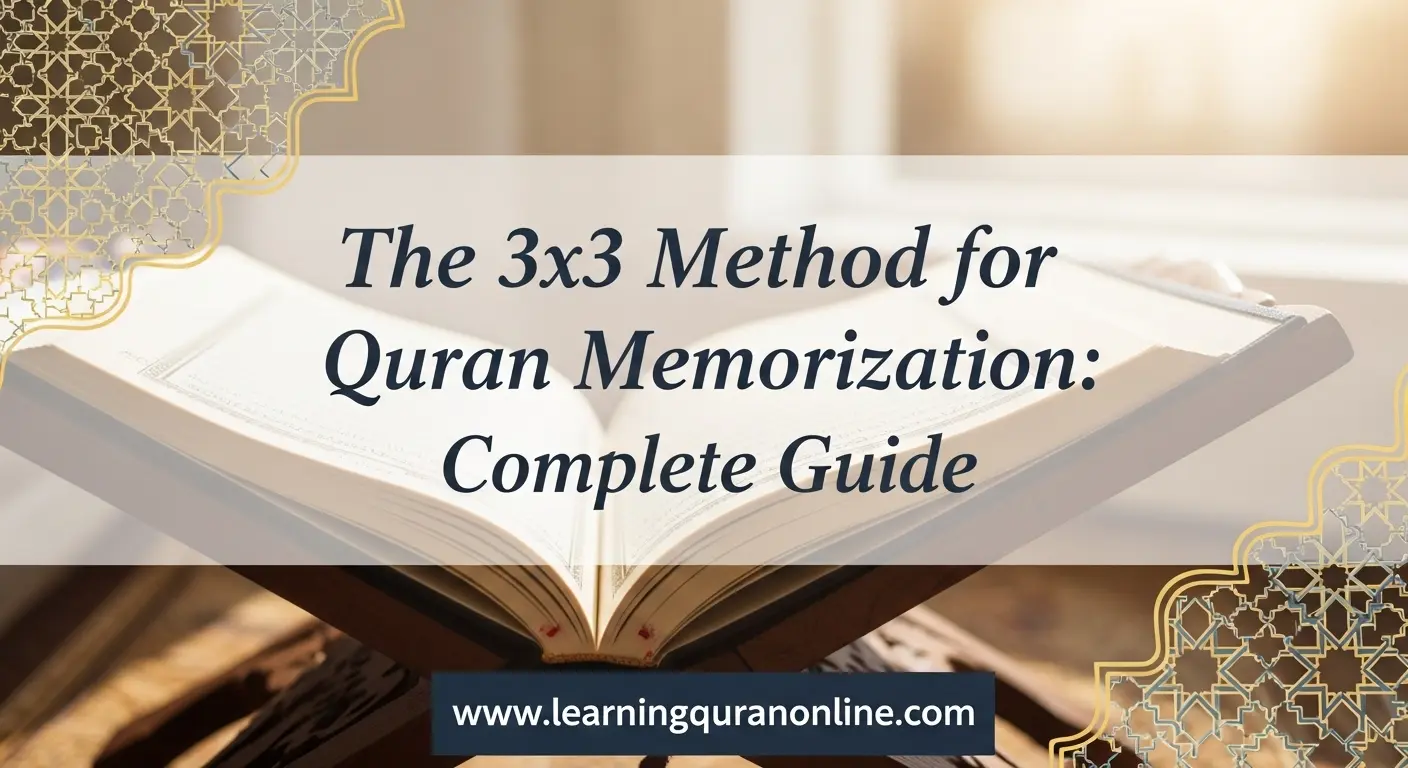Table of Contents
ToggleWhy Learn Quran Online?
Online Quran education has grown rapidly due to its convenience and quality. Students can access certified Quran tutors, attend one-to-one lessons, or join small group classes from the comfort of home. Online Quran learning is ideal for busy families, working adults, and students in locations with limited access to qualified teachers.
- Flexible timings and easy scheduling for both kids and adults.
- One-to-one Quran classes for focused tajweed and recitation improvement.
- Affordable online Quran classes and competitive pricing compared to in-person lessons.
- Access to certified Quran teachers, native Arabic speakers and female Quran tutors.
- Interactive lessons via virtual classrooms with audio and video support.
Core Types of Online Quran Courses
Different students have different needs. Here are the most common types of online Quran classes available:
Tajweed Classes
Tajweed lessons focus on rules of pronunciation, articulation points (Makharij), and characteristics of letters (Sifaat). These classes help learners recite the Quran correctly and beautify their recitation.
How to Read Quran Online: Complete Beginner’s Guide
Hifz (Memorization) Courses
Hifz programs are structured to help students memorize the entire Quran or specific surahs. These courses often include revision schedules, daily targets, and recorded sessions for review.
Tafsir and Quranic Understanding
Tafsir classes aim to deepen understanding of verses, historical context, and practical lessons. These are ideal for intermediate and advanced learners who want to connect recitation with meaning.
Quranic Arabic
Quranic Arabic courses teach the language of the Quran, enabling learners to read translation-less and understand grammar, vocabulary, and linguistic structure.
Beginner Courses
Beginner courses cover basics: Arabic alphabet, correct pronunciation, phonics, and foundational tajweed rules. They are suitable for children and new learners.
How to Choose the Best Online Quran Academy
Choosing a reliable online Quran academy is crucial for meaningful progress. Use the following checklist when comparing platforms and tutors:
- Qualified Tutors: Look for certified Quran teachers with proven experience in tajweed and Hifz coaching.
- Trial Classes: A free trial class helps evaluate teaching style, platform usability, and student-teacher rapport.
- Flexible Scheduling: Ensure classes can be scheduled according to your time zone and routine.
- One-to-One vs Group: Decide whether one-to-one lessons (best for personalized progress) or small group lessons (cost-effective and social) suit you.
- Curriculum & Progress Tracking: Check for personalized lesson plans, clear learning objectives, and tools for progress monitoring.
- Student Reviews & Testimonials: Read feedback from other students, especially for classes focused on tajweed, Hifz, or Quranic Arabic.
- Security & Payment Options: Look for secure payment gateways and transparent cancellation policies.
How to Choose the Right Online Quran Academy
Key Features of a Good Online Quran Platform
Top online Quran learning platforms combine technology with pedagogy to deliver quality instruction. Important features include:
- Live interactive sessions via a virtual classroom with real-time voice and video.
- Recording capability so students can review missed lessons.
- Lesson materials: digital mushaf, worksheets, audio drills, and quizzes.
- Mobile-friendly interface and dedicated apps for learning on-the-go.
- Parent dashboards to monitor children’s attendance, progress, and homework.
- 24/7 support, flexible rescheduling, and personalized lesson adjustments.
Tips for Effective Online Quran Learning
Online learning demands discipline and a structured approach. Here are practical tips to maximize results:
- Set Clear Goals: Define whether your goal is tajweed improvement, Hifz completion, or learning meaning and Tafsir.
- Create a Routine: Schedule regular sessions and assign specific times for revision and memorization daily.
- Practice Between Lessons: Practice recitation aloud, record your voice, and compare with your teacher’s corrections.
- Use Supplementary Resources: Leverage apps, Quranic dictionaries, and tafsir books to reinforce classroom learning.
- Stay Accountable: Use progress trackers and periodic assessments to measure improvement.
- Engage Parents: For young learners, parental involvement in attendance and practice is crucial.
Technology & Setup: What You Need
Getting started technically is straightforward. Ensure the following before your first lesson:
- Stable Internet Connection: Broadband or 4G/5G for uninterrupted live sessions.
- Device: A laptop, tablet, or smartphone with a working camera and microphone.
- Headphones: Noise-cancelling headphones improve listening and reduce echo.
- Apps & Software: Zoom, Google Meet, or platform-specific virtual classrooms; install and test beforehand.
- Quiet Study Space: A distraction-free area with good lighting for reading the Mushaf and following tajweed rules.
Finding the Right Quran Tutor
A good Quran teacher can make all the difference. Consider these factors when selecting your tutor:
- Credentials: Tajweed certifications, Ijazah, or degrees in Islamic studies.
- Experience: Years of teaching and proven success in Hifz or tajweed results.
- Language: Tutors who speak your native language or explain concepts clearly in a language you understand.
- Gender Preference: Many parents prefer female tutors for girls; choose based on comfort and cultural considerations.
- Teaching Style: Interactive, patient, and tailored to the learner’s pace.
Sample Weekly Study Plan
A structured study plan helps maintain momentum. Here’s a sample weekly schedule for a beginner or intermediate learner:
- Day 1: Live tajweed lesson (30–45 minutes) with exercises on articulation points.
- Day 2: Review and practice (20 minutes), listening to teacher’s recorded recitation.
- Day 3: Vocabulary and Quranic Arabic practice (30 minutes).
- Day 4: Recitation and correction session with teacher (30–45 minutes).
- Day 5: Memorization or revision session (20–30 minutes).
- Day 6: Tafsir/meaning study (30 minutes).
- Day 7: Rest or light revision, reflection on progress, and planning for next week.
Common Questions (FAQs)
Are online Quran classes effective?
Yes. With the right tutor, structured curriculum, and consistent practice, online Quran classes can be as effective as in-person lessons. Recorded lessons and digital resources make review easier.
Can children learn Quran online?
Absolutely. Child-friendly curriculums, gamified lessons, patient tutors, and parental monitoring make online Quran learning very suitable for kids.
How long does it take to memorize the Quran online?
Timeframes vary depending on daily hours dedicated to memorization, age, and prior knowledge. With disciplined daily effort and expert tutoring, some students complete Hifz in a few years.
Is tajweed possible over video calls?
Yes. With real-time feedback, audio clarity, and recording tools, tutors can correct pronunciation and demonstrate proper articulation remotely.
Why Choose a Reputable Online Quran Academy?
A reputable academy offers a reliable curriculum, certified tutors, secure payments, and ongoing support. For example, Learning Quran Online combines flexible scheduling, trial sessions, certified teachers, and a student-centered approach to help learners across levels achieve their Quranic goals.
Final Thoughts
Learning the Quran online is an accessible, efficient, and modern approach to deepening your connection with the Book. By selecting the right course—whether for tajweed, Hifz, Tafsir, or Quranic Arabic—you can progress steadily with qualified tutors, flexible scheduling, and engaging virtual tools. Use trial lessons to find the right teacher, set realistic goals, and adopt a consistent study routine. With patience, dedication, and the right online Quran classes, mastering Quran recitation and understanding is truly within reach.
If you’re ready to begin, start with a trial class, evaluate the tutor’s teaching style, and create a study plan that fits your life. May your online Quran journey be fruitful and rewarding.
















